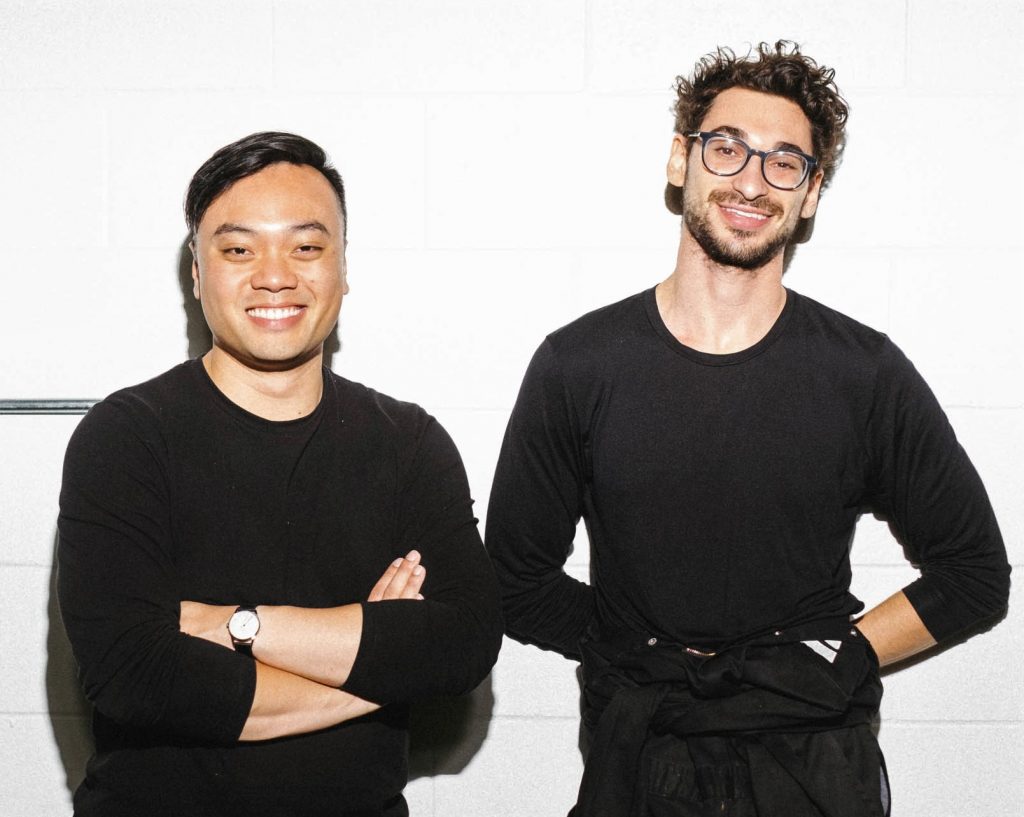You probably wouldn’t drink vinegar straight up. But two University of Guelph food science grads are betting consumers will raise a glass to their wine proxies and other acid-based food products that the duo believes are set to shake up a long-dormant grocery food category.
Starting as undergrads doing fermentation experiments in a Guelph basement and in a U of G food lab, Allan Mai and Cole Pearsall have built a 30-employee company making acid-based ingredients for foods and non-alcoholic beverages.
Acid League’s line of unpasteurized “Living Vinegars” is now selling in Whole Foods outlets in the United States; they expect Whole Foods will begin stocking Canadian shelves with nearly a dozen of their specialty and balsamic vinegars this year.
They’re also selling sauces, vinaigrettes, condiments, salad dressings and related products in about 1,000 stores in Canada and the U.S. and are busy creating new recipes for food products. Many of their products are available online.
Acid League also produces non-alcoholic wine proxies that they say create new possibilities for food pairings for consumers dining out and at home.
Non-alcoholic beverages from beer to spirits have become popular with consumers, with new products routinely appearing in restaurants and at trade shows. What was lacking was an equivalent wine proxy. Some companies sold wine with the alcohol removed, but Mai says the result was unsatisfactory.
“There was no great-tasting non-alcoholic wine on the market,” says Mai, “but one of the things that pairs best with food is wine.”
Looking to understand why, he and Pearsall set out to deconstruct wine, examine its chemical components and figure out how to rearrange ingredients to provide the same texture and sensory experience in a proxy beverage.
“Acidity is a massive part of that,” says Mai. “Acidity really lifts the dish. It works with fat really well.”
That acid comes from vinegars – not just your basic white vinegar but numerous variations, from a sundried tomato variety to a mango jalapeno vinegar that flavours a mango jalapeno hot sauce.
Acid is also key for preserving and extending the shelf life of many grocery store items.
“We knew vinegar was a core ingredient in almost every grocery shelf-stable product,” says Mai. “If we were able to unlock flavour differentiation and quality, we could slot that into any category of hot sauce, condiment, salad dressing.”
In the process, says Pearsall, they would be rejuvenating a basic product that hadn’t seen a new innovation since the introduction of balsamic vinegar about four decades ago. “We saw this big opportunity. We could blow up the category.”
The duo learned how to make vinegar, just the latest form of experimentation that had already occupied numerous hours in Pearsall’s basement and in the Guelph Food Innovation Centre on campus.
They had met in 2015 at U of G, where both students completed the food science program in 2018. Both had brought food experience to their studies: Pearsall worked at a bakery in Toronto; Mai attended culinary school after completing a degree in economics at Queen’s University.
They discovered a mutual interest in experimenting to create new products – something that still drives Acid League today.
They launched the company just before the pandemic. Along the way, they took part in the business incubator program run by the John F. Wood Centre for Business and Student Enterprise in U of G’s Gordon S. Lang School of Business and Economics.
Although both still live in Guelph, they make their products in a facility in Mississauga, Ont., where several employees are U of G food science grads.
They’re working with Scott Friedmann, a food entrepreneur. Pearsall serves as chief sales officer and Mai as chief product officer.
They’re also investigating collaborations, including working with local partners, according to a recent Guelph Today article. They’ve sourced malt from Wellington Brewery, experimented with produce from the Guelph Centre for Urban Organic Farming and worked with a producer using vinegar to make jams.
Creating lasting food experiences is the goal, says Pearsall. “Something that connects every single person is food. What we do can bring people together – everybody breaks bread. We aim to make that into a more memorable experience.”
